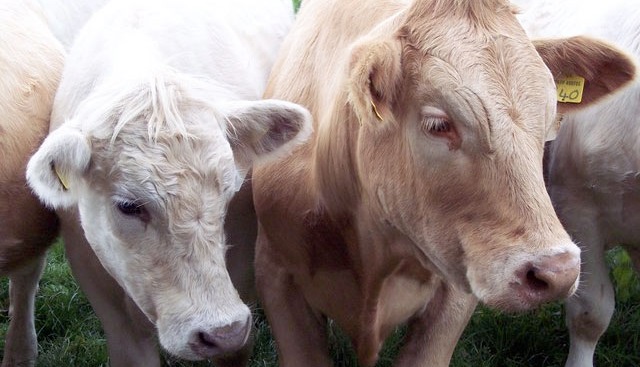
The British Veterinary Association (BVA), the British Cattle Veterinary Association (BCVA), the Sheep Veterinary Society (SVS) and the Goat Veterinary Society (GVS) have responded to the publication of the Animal and Plant Health Agency’s (APHA) risk assessment of a Bluetongue outbreak in the UK.
Following the ongoing presence of the disease in France, the report reveals the UK is at risk of an outbreak during the Spring or, more likely, late Summer months.
BVA's Senior Vice President John Blackwell joined Defra, the National Farmers’ Union (NFU) and The Pirbright Institute in urging farmers to remain vigilant over the Bluetongue risk, including monitoring their stock carefully and reporting any clinical signs of the disease immediately to their vet and the APHA.
BVA Senior Vice President said: “The APHA risk assessment has identified a high risk of a Bluetongue outbreak in the UK towards the end of the summer. The information released today is a useful reminder to UK farmers, particularly those in the South East of England, to remain vigilant for any signs of Bluetongue in their animals.
“We strongly encourage all farmers to closely monitor their stock for Bluetongue symptoms - particularly sheep that are most susceptible to the disease - including eye and nasal discharge, drooling, swelling around the head or mouth, lethargy and lameness. Cattle may show no signs of illness, but any suspected symptoms should be reported immediately to your local vet and to the APHA.
“Vets are there to support farmers in protecting the health and welfare of their livestock. We’d recommend farmers speak to their local vet about the benefits of vaccination, given their locality and individual circumstances, and especially if farmers have any concerns about their livestock. As vaccination is one of the key controls, BVA and our colleagues in other veterinary associations will continue to work with farmers, government and manufacturers to ensure there is enough vaccine to meet demand.”
“The current situation highlights the continuing importance of robust disease surveillance. In a global world, where diseases such as Bluetongue pose threats to UK livestock – whether as a new disease or the re-emergence of a disease after many years with no outbreaks in the UK – it’s important we have the capability to identify and diagnose in order to protect our national herd and flock.
“BVA has called on government and industry to lead in developing new and cost efficient ways to capture and analyse disease and surveillance data, drawing on innovations in digital technology and big data analysis.”
Neil Blake BCVA President said: “Bluetongue is a notifiable disease. BCVA urges vets and farmers to ensure they are aware of the clinical signs and of the importance of reporting suspicion of disease as the year progresses and the risk of incursion increases, especially in the likely higher risk areas towards the South and East of Great Britain.
“Although clinical signs seen in France have been generally mild, the disease has the potential to cause significant production loss, and also major disruption to trade. Farmers considering importing animals or attending shows in or near the affected area in mainland Europe should consider carefully the risk to their stock and others', and keep themselves fully informed. Vaccination is a key part in the control and prevention of spread as it was in in 2007-8 in the UK, and it is hoped that availability of vaccine will not be a limiting step in BTV control should it reach Great Britain.”
Tim Bebbington SVS President said: “It is sobering to learn that there is likely to be an incursion of Bluetongue into Southern England in late summer 2016. It seems that we are again vulnerable to the spread of a once exotic disease that is carried by midges blown on the wind. Sheep can suffer severe ill health from Bluetongue infection, with extensive damage to the lining of the mouth, swollen face and tongue, lethargy and lameness.
“Our national flock needs protection. All farmers and vets must remain vigilant and report any suspicious signs in their stock as Bluetongue is notifiable. The last outbreak of Bluetongue in 2007-8 was controlled and eradicated both by the use of movement controls, insecticides and most importantly 28 million doses of vaccine. The production, supply and delivery of vaccine on this scale was an outstanding achievement of the pharmaceutical and livestock industry. As our livestock is threatened again we may have to repeat this feat. Farmers in Southern England should consult with their vets as they likely to be in the front line and vaccination along this coast will be our best defence.”
David Harwood GVS Chairman said: “All goats are susceptible to Bluetongue, and it is important that this message is made clear not only to farmers, but to all those who keep goats, many of which are kept as pets and are popular in public attractions around the UK. We would urge all goat owners to remain vigilant for this disease, and to familiarise themselves with the clinical signs described and to discuss any concerns with their own veterinary surgeon.”
See also: Farmers urged to remain vigiliant over Bluetongue risk
